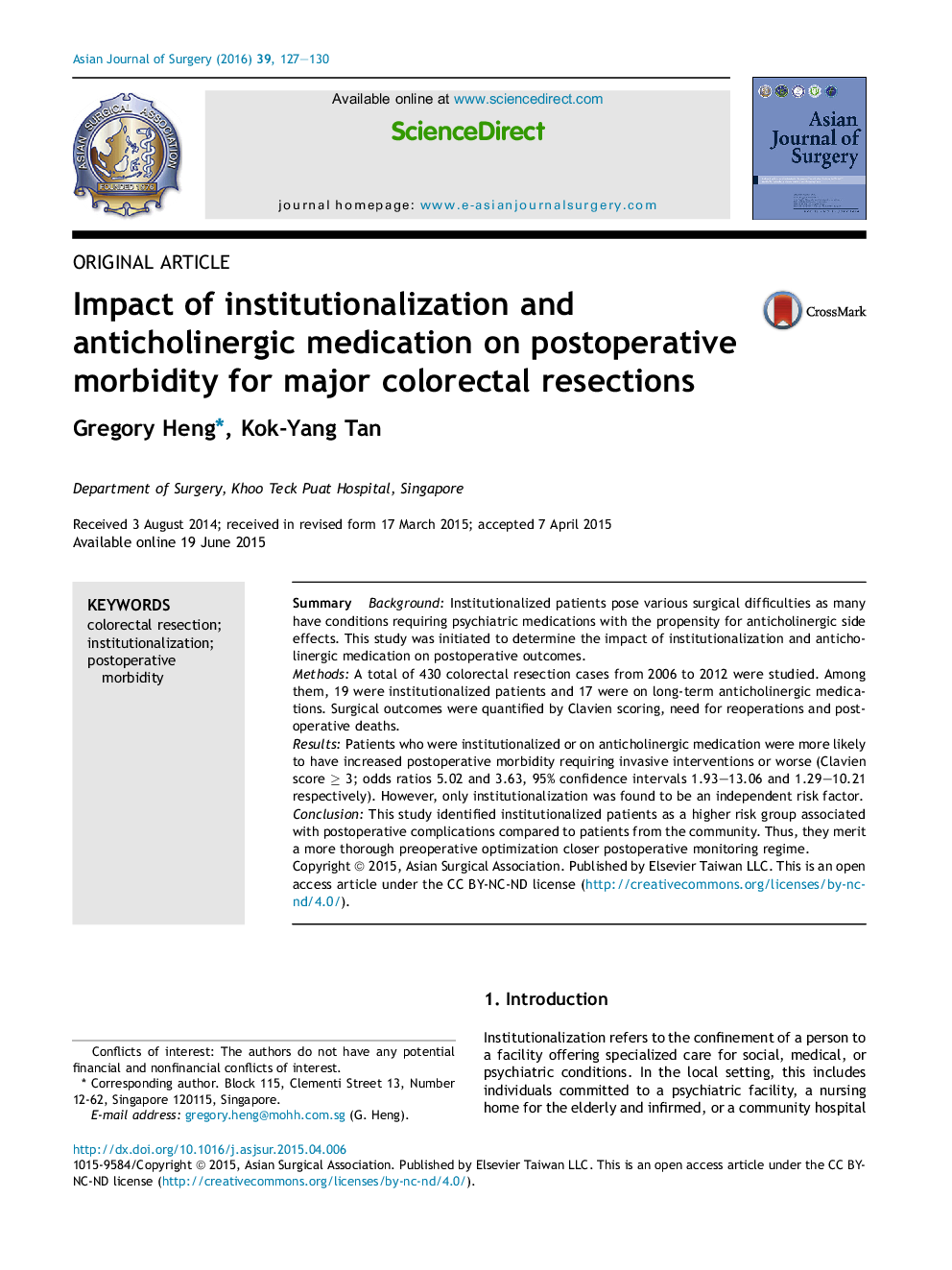| Article ID | Journal | Published Year | Pages | File Type |
|---|---|---|---|---|
| 4282543 | Asian Journal of Surgery | 2016 | 4 Pages |
SummaryBackgroundInstitutionalized patients pose various surgical difficulties as many have conditions requiring psychiatric medications with the propensity for anticholinergic side effects. This study was initiated to determine the impact of institutionalization and anticholinergic medication on postoperative outcomes.MethodsA total of 430 colorectal resection cases from 2006 to 2012 were studied. Among them, 19 were institutionalized patients and 17 were on long-term anticholinergic medications. Surgical outcomes were quantified by Clavien scoring, need for reoperations and postoperative deaths.ResultsPatients who were institutionalized or on anticholinergic medication were more likely to have increased postoperative morbidity requiring invasive interventions or worse (Clavien score ≥ 3; odds ratios 5.02 and 3.63, 95% confidence intervals 1.93–13.06 and 1.29–10.21 respectively). However, only institutionalization was found to be an independent risk factor.ConclusionThis study identified institutionalized patients as a higher risk group associated with postoperative complications compared to patients from the community. Thus, they merit a more thorough preoperative optimization closer postoperative monitoring regime.
